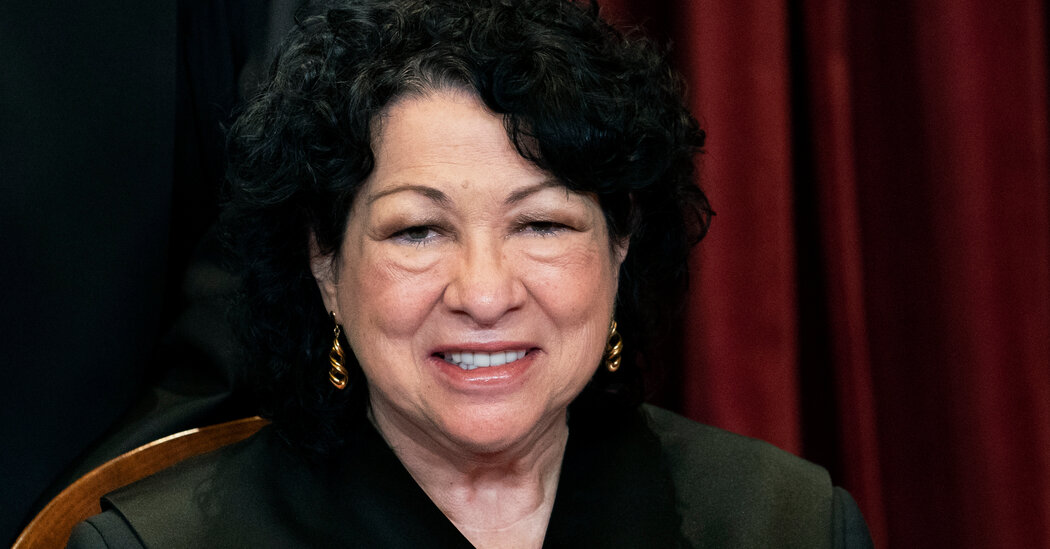New York prisons will not release people convicted of some sex offenses until they find housing far from schools. But that is hard to do, especially from behind bars.
WASHINGTON — Angel Ortiz, in prison for robbery and attempted sexual abuse, had done his time. But before he could go free, a judge wrote, he faced “an unwinnable game of real-estate Battleship.”
Mr. Ortiz was classified as a sex offender, and a New York law barred him from living within 1,000 feet of a school while on parole. Prison officials would not let him go until he identified a suitable address.
They did almost nothing to help him.
The corrections department “provides an inmate with occasional access to a telephone, instructs the inmate to find and propose potential places to live, and then informs the inmate from time to time that the proposed addresses are unacceptable,” the judge, Rowan D. Wilson of the New York Court of Appeals, wrote in a dissent in Mr. Ortiz’s case.
Mr. Ortiz served an extra 25 months because he could not find a place to live. He wanted to return to New York City, where his mother and daughter lived. But most of the city was off limits because almost all residential areas are within 1,000 feet of a school.
After officials denied Mr. Ortiz’s request to move in with his mother, he came up with dozens of alternatives, including some in upstate New York. All were denied.
“In effect,” Justice Sonia Sotomayor wrote last month when the Supreme Court refused to hear Mr. Ortiz’s case, “New York’s policy requires indefinite incarceration for some indigent people judged to be sex offenders.”
Mr. Ortiz was, according to court papers, “accused of sexually threatening a pizza delivery man during the course of a robbery designed to secure money in order to obtain drugs.” He pleaded guilty and was sentenced to 10 years in prison, followed by five years of parole. Credits for good behavior reduced the prison term by 17 months, but he spent all of those months behind bars for lack of somewhere to go.
Even after the 10 years were over, officials refused to release him. Instead, they moved him to what they called “residential treatment facilities” that were in fact ordinary correctional institutions.
“Mr. Ortiz was housed with the general population, slept on a bunk bed in a dormitory-style unit, stored his possessions in a small, gray locker given to every inmate, used the same bathrooms, showers and recreation rooms as the general prison population, and ate his meals in the same mess hall,” Judge Wilson wrote.
While there, he filed a writ of habeas corpus seeking his freedom.
Courts in New York turned him down and so did the Supreme Court, without comment. But Justice Sotomayor issued a statement, saying that “New York’s residential prohibition, as applied to New York City, raises serious constitutional concerns.”
Mr. Ortiz was released in 2018, when a bed opened up in the New York City shelter system on Wards Island, one that was far enough from schools to satisfy the New York law.
When the New York Court of Appeals, the state’s highest court, ruled against him in 2020, it said his release did not make his case moot because the case presented “substantial and novel issues that are likely to be repeated.”
Indeed, some 250 people in New York are kept incarcerated each year after they have earned their release, according to court papers in Mr. Ortiz’s case. This creates “a cruel Catch-22” for people classified as sex offenders, Allison Frankel wrote in 2019 in The Yale Law Journal Forum, because corrections officials will “not release them from prison until they obtained approved housing, but their poverty, disabilities and sex-offender registration status made finding housing impossible.”
Even people with money, connections, time and mobility can find it hard to locate a place to live in New York City. Doing so from a prison cell is close to impossible, wrote Ms. Frankel, who has represented people who have tried.
“While their loved ones sometimes can help find housing,” she wrote, “often our clients’ families have limited English-language abilities, computer literacy, financial resources, knowledge of the housing market and time away from work to search for housing.”
States have a compelling interest in protecting children from sexual violence, Justice Sotomayor wrote, but it is not clear that the New York law advances that interest.
To the contrary, a 2017 Justice Department study found that “there is no empirical support for the effectiveness of residence restrictions.”
“In fact,” the study said, “a number of negative unintended consequences have been empirically identified, including loss of housing, loss of support systems and financial hardship that may aggravate rather than mitigate offender risk.”
Letitia James, New York’s attorney general, urged the Supreme Court to turn down Mr. Ortiz’s appeal. “While this case may show that there is a need for more compliant housing in New York City,” she wrote, “it does not present a constitutional question meriting this court’s review.”
Justice Sotomayor said she held out hope that “New York will choose to re-evaluate its policy in a manner that gives due regard to the constitutional liberty interests of people like Ortiz.”
Failing that, she wrote, the Supreme Court should act.
“Because of the grave importance of these issues and the frequency with which they arise,” she wrote, “it seems only a matter of time until this court will come to address the question presented in this case.”































